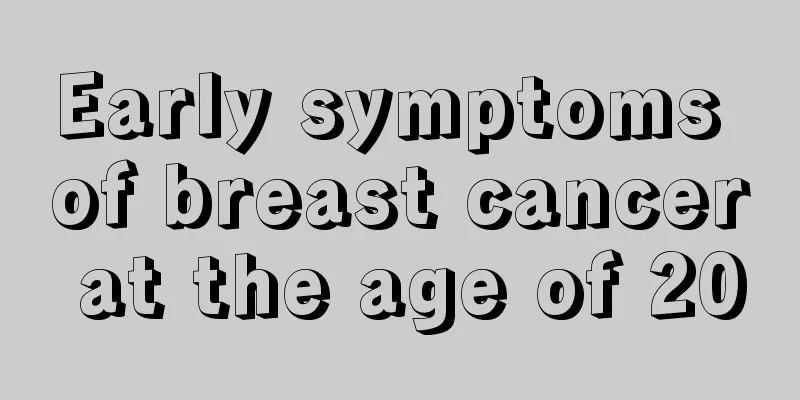What are the chemotherapy options for nasopharyngeal carcinoma?

|
With the progress of the times, people's living standards are getting higher and higher. While you are enjoying life with your family, have you ever thought about paying attention to some cancers? Although modern technology is advanced, due to the hidden nature of nasopharyngeal cancer, the symptoms of early cancer patients are extremely unclear. Clinically, most nasopharyngeal cancer patients have obvious symptoms in the middle and late stages. Here, we remind our friends that even if you are not sick, you should pay attention to it. Even if you don't consider yourself, you should consider your family. The health of your family is your own health. Commonly used chemotherapy methods for nasopharyngeal carcinoma in clinical practice mainly include induction chemotherapy, adjuvant chemotherapy, concurrent chemoradiotherapy combined with radiotherapy, concurrent chemoradiotherapy + adjuvant chemotherapy, etc., which have greatly improved the efficacy and clinical symptoms in the treatment of nasopharyngeal carcinoma. 1. Induction chemotherapy : Induction chemotherapy can quickly relieve various adverse clinical symptoms of nasopharyngeal carcinoma patients and relieve the pain of patients. Especially for patients with locally advanced nasopharyngeal carcinoma, it can improve the efficacy to a certain extent, reduce the chance of recurrence, and effectively control distant micro-metastases. For patients with advanced nasopharyngeal carcinoma who are not suitable for radiotherapy, induction chemotherapy can be fully implemented to stabilize the condition. The effectiveness of induction chemotherapy is a powerful indicator for predicting the prognosis of nasopharyngeal carcinoma patients. The next treatment plan can be determined based on their response, which has a profound impact on improving long-term efficacy. 2. Adjuvant chemotherapy : Currently, there are few phase III clinical studies on adjuvant chemotherapy, and most of them have no positive results. It is particularly important to explore new effective drugs and appropriate dosage strengths, select highly effective and low-toxic drugs, and reduce their toxic reactions in adjuvant chemotherapy for nasopharyngeal carcinoma. 3. Concurrent chemoradiotherapy : Research reports indicate that the use of concurrent chemoradiotherapy with platinum can achieve good results in the treatment of NPC. Phase III clinical trials have found that concurrent chemoradiotherapy can significantly improve the local control rate of patients with locally advanced NPC, significantly delay or prevent distant metastasis of NPC, and has a definite effect in improving survival rate. However, its toxicity cannot be ignored, especially for patients who have undergone induction chemotherapy, who cannot tolerate strong toxic side effects. We recommend that traditional Chinese medicine be combined with induction chemotherapy, adjuvant chemotherapy or concurrent chemoradiotherapy to enhance efficacy and reduce toxicity, which has a good synergistic effect on the treatment of NPC. 4. Concurrent chemoradiotherapy + adjuvant chemotherapy : In recent years, concurrent chemoradiotherapy + adjuvant chemotherapy has been used as the standard treatment for locally advanced nasopharyngeal carcinoma in some areas. Research results show that chemotherapy or radiotherapy alone is less effective. Combination therapy can effectively improve local control rate according to the patient's condition, but the toxicity is also greater. Traditional Chinese medicine can be used to reduce the toxic side effects of chemoradiotherapy and improve the patient's quality of life. The above is the introduction to "What are the chemotherapy options for nasopharyngeal carcinoma?" When the above symptoms appear, patients should go to a regular hospital for treatment. Early detection and early treatment can effectively cure nasopharyngeal carcinoma. People who are related to the pathogenic factors of nasopharyngeal carcinoma are advised to take preventive measures for nasopharyngeal carcinoma. If you have other questions about nasopharyngeal carcinoma, please consult our experts online or call for consultation. Nasopharyngeal cancer http://www..com.cn/zhongliu/bya/ |
<<: What are the symptoms of bone cancer
>>: What are the symptoms of brain cancer metastasis
Recommend
What to do if you can't sleep due to toothache in the middle of the night
Toothache is a problem that many people have, and...
How to remove oil stains on cotton-padded jacket?
Wearing a cotton-padded jacket is an effective me...
Specific methods of plasma treatment of rhinitis
Rhinitis is a stubborn disease that always recurs...
Is prostate cancer hereditary? Detailed description of the probability of prostate cancer inheritance
When it comes to cancer, everyone will feel parti...
What is the reason for many eye wrinkles? Three common reasons
Wrinkles are very likely to appear around women&#...
What are the types of lymphoma and what are the treatments?
What are the types of lymphoma and what are the t...
What's wrong with the red pimples on my back?
It is a very common phenomenon to have red pimple...
What are some good ways to maintain health?
Maybe many people don’t know much about good heal...
How much does a pancreatic cancer puncture cost
In the diagnosis and treatment of pancreatic canc...
What foods are good for hamartoma
Hamartoma is a benign tumor, and more men than wo...
What are the differences between latex and rubber?
People's lives are full of various gelatinous...
What to do if the oral mucosa falls off
Some patients who have suffered from oral disease...
The role of vitamin C in the human body
What are the benefits of taking vitamin C? Many o...
How to clean the black bottom of a toothbrush
How to clean the black bottom of the toothbrush T...
What are the specific side effects of brain cancer radiotherapy?
When it comes to the treatment of brain cancer, m...









